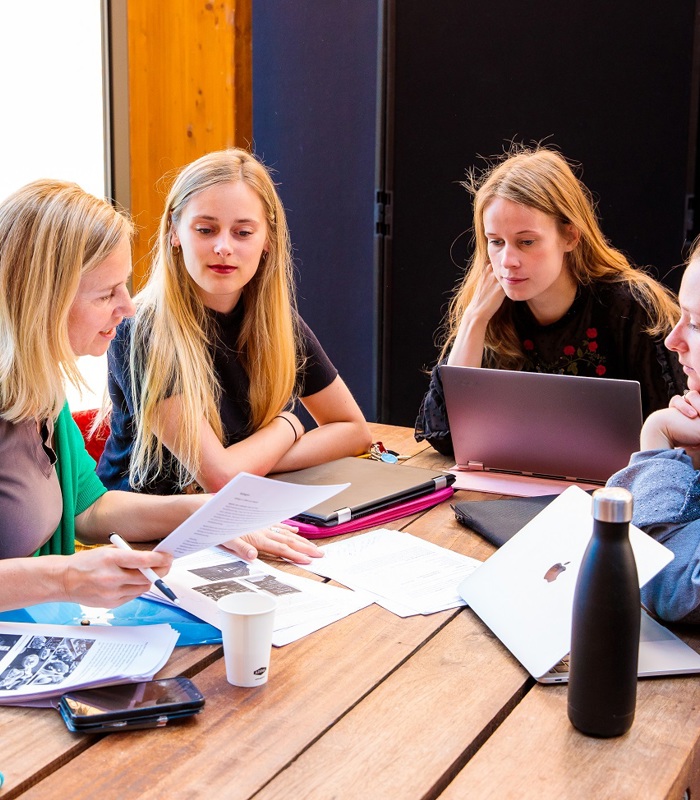Last autumn, HAS University of Applied Sciences launched a research project to look at ways to improve entrepreneurial education. The starting point is the student's own world: what issues do they face when starting their own business? And how can we, as an educational institution, provide the best possible guidance to students in how to resolve these issues, even when this does not fit exactly within the curriculum? Peter ter Horst is programme manager for Entrepreneurial Education at HAS University of Applied Sciences and tells us more about his work.
What was the reason behind this research?
Peter: “Imagine, you’re 20 years old, studying at HAS University of Applied Sciences and want to start your own business. That’s quite a step. Because, when you become an entrepreneur, everything you do has a direct impact on your entire life. The moment you start your own business, you really become dependent on yourself. This is why, as HAS University of Applied Sciences, we provide intensive support for students wanting to take this step. We do this, for example, in the Top-Class Business Programme, and also as part of the regular curricula. A recent survey among students on the Top-Class Business Programme showed that they are satisfied with the initiative, but would like to see even more attention paid to their individual issues.”
What do you mean exactly?
“The obstacles students encounter when starting their own business do not always fit in with the content and timing of the programme we’re offering. Each student is unique; just like each business. The programme needs to focus more on this. In order to achieve this, we need to devote more time to these issues. The lecturers and professional experts also need to be flexible and entrepreneurial in their approach. HAS University of Applied Sciences is currently conducting research to assess exactly what is needed. The starting point is the entrepreneurial student’s own world. Because that’s where it all starts.”
What is the entrepreneurial student’s own world?
“At the moment, the emphasis within projects such as the Top-Class Business Programme is mainly on setting up the company itself, the administration side of entrepreneurship. For example: Is the business plan well thought out? Is there a revenue model? Does it target the right market? All these issues are firmly anchored in the curriculum. We now want to pay more attention to the person who is going to be running the business and the influence being an entrepreneur will have on their life. Think about what I said at the beginning of the interview: the uncertainty that entrepreneurship brings, but also, for example, having to perform under pressure, or learning to solve problems creatively. It’s more about personal development. For example, a student may not yet be able to deliver a business plan because of a family conflict about the direction of the company. The urgent question then is: ‘How do I resolve the conflict?’”
How is this reflected in the research?
“We’re looking into what entrepreneurial education would look like if you took personal development as a starting point. Because it’s not only about more individual conversations per student, but also about bringing personal issues into the group process. This way students can also learn from each other and take steps not only individually but also as a group. Working with personal case studies ensures that students develop quickly. The business side is also still important, but you build the curriculum around the student's own world."
What does this mean for the supervising lecturers and professional experts?
“They should be more flexible and able to respond to the situation at any given time. This sometimes means improvising or changing the programme. They must also be in close contact with each other to achieve this. It’s not only the students who need an entrepreneurial attitude within such a project, this also applies to the supervisors. They take on a facilitating role. This applies to the Top-Class Business Programme, and also to the Meaningful Entrepreneurship course, some minors and various standard modules.”
Does it also affect how you assess the students?
“Certainly, and that's what we're zooming in on within the research. Traditional assessment techniques, such as a written examination or business plan, are only partially appropriate when it comes to a student's personal development. That’s why we’re researching alternative assessment methods. We’re dealing with national competences, described in general terms. The main question we want to answer in this research is: in what way and under what conditions can we apply a broader spectrum of formal testing? For example, reflection plays an important role in this.”
What results do you expect from the research?
“A lot of research has already been done into entrepreneurial education. Our goal isn't to develop an entirely new method. We want to apply what’s already there, with the student’s own world as our starting point. This has added value for us as HAS University of Applied Sciences as we deliver an above-average number of students who are going to become entrepreneurs: about 20% of our student population. For us, this number is normal, but actually it’s very special. And what really helps us a lot are the close contacts with the professional field that arise when we work together in projects, as well as partners such as Ondernemerslift+.”
Financial support from 02LAB
The research carried out by HAS University of Applied Sciences is called 'LEEFwereld: learning needs and learning outcomes' and receives financial support from 02LAB, a programme of the Netherlands Enterprise Agency (RVO). The research was selected as 1 of 7 project proposals from 26 entries. All project proposals are aimed at strengthening entrepreneurial education in the Netherlands. The research will be completed this summer.


